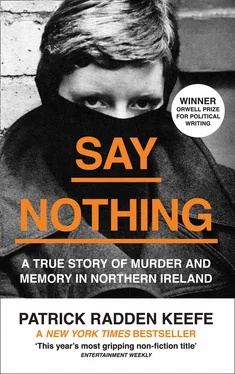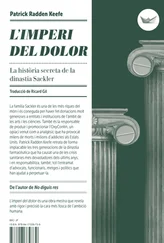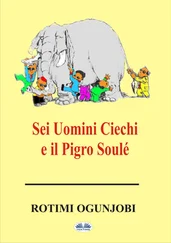‘That was somebody’s son,’ she replied.
The McConvilles never saw the soldier again, and to this day the children cannot say what became of him. But when they left the flat the next morning, they found fresh graffiti daubed across their door: BRIT LOVER.
This was a poisonous allegation. In the febrile atmosphere of wartime Belfast, for a local woman to be seen consorting with a British soldier could be a dangerous thing. Some women who were suspected of such transgressions were subjected to an antique mode of ritual humiliation: tarring and feathering. A mob would accost such women, forcibly shave their heads, anoint them with warm and sticky black tar, then shower a pillowcaseful of dirty feathers over their heads and chain them by the neck to a lamppost, like a dog, so that the whole community could observe the spectacle of their indignity. ‘Soldier lover!’ the mob would bray. ‘Soldier’s doll!’
In an environment where many married men were being locked up for long stretches, leaving their wives alone, and where cocky young British soldiers were patrolling the neighbourhoods, deep-seated fears of infidelity, both marital and ideological, took hold. Tarring and feathering became an official policy of the Provisional IRA, which the leadership publicly defended as a necessary protocol of social control. When the first few cases turned up at local hospitals, the befuddled medical personnel had to consult with the maintenance crews who took care of their buildings about the best method for removing black tar.
It felt to Michael McConville as if he and his family were strangers in a strange land. Expelled from East Belfast for being too Catholic, they were outsiders in West Belfast for being too Protestant. After their home was marked with the graffiti, what few local friends they had no longer wanted anything to do with them. Everywhere they turned, they found themselves in an adversarial situation. Archie was badly beaten by the youth wing of the Provos and had his arm broken for refusing to join the organisation. Helen and a friend were harassed by a regiment of soldiers. Helen would later suggest that her mother may have further alienated the family from their neighbours by declining to take part in ‘the chain’, the hand-to-hand system for hiding weapons during police searches of the complex; Jean feared that if she was caught with a gun in the house, she might lose another child to prison. At a certain point, the family dogs, Provo and Sticky vanished. Someone had shoved the animals down a rubbish chute, where they died.
Michael had asthma, and Jean worried that the gas heating in the flat was aggravating it. She requested a transfer, and the family was granted a new flat, in another section of Divis Flats called St Jude’s Walk. They packed their belongings and made the short move into the new space. It was slightly larger than the previous one, but otherwise not much different.
Christmas was coming, but the city was hardly festive. Many shops were boarded up and closed, because they had been bombed. Jean McConville’s only indulgence in those days was a regular excursion to play bingo at a local social club. Whenever she won anything, she would give the children twenty pence each. Occasionally, she would bring home enough to buy one of them a new pair of shoes. One night after the family had moved into the new flat, Jean went with a friend to play bingo. But on that particular evening, she did not come home.
Shortly after 2 a.m., there was a knock at the door. It was a British soldier, who informed the McConville kids that their mother was at a barracks nearby. Helen raced to the barracks and found Jean, bedraggled and shoeless, her hair all over the place. Jean said that she had been at the bingo hall when someone came in and told her that one of the children had been hit by a car, and that someone was waiting outside to take her to the hospital. Alarmed, she left the bingo hall and got into the car. But it was a trap: when the door opened, Jean was pushed onto the floor and a hood was placed over her head. She was taken to a derelict building, she said, where she was tied to a chair, beaten and interrogated. After she was released, some army officers found her wandering the streets, distressed, and brought her to the barracks.
Jean couldn’t – or wouldn’t – say who it was that had abducted her. When Helen wondered what kinds of questions they had been asking, Jean was dismissive. ‘A load of nonsense,’ she said. ‘Stuff I knew nothing about.’ Jean could not sleep that night. Instead she sat up, her face bruised, her eyes black and blue, and lit one cigarette after another. She told Helen that she missed Arthur.
The children would later recall that it was the following evening that Jean sent Helen out to fetch fish and chips for dinner. She filled a bath, to try to soothe the pain of the beating she had taken the night before. As Helen was leaving, she said, ‘Don’t be stopping for a sneaky smoke.’
Helen made her way through the labyrinthine passages of Divis to a local takeaway where she ordered dinner and waited for it. When the food was ready, she paid, took the greasy bag, and started to walk back. As she entered the complex, she noticed something strange. People were loitering on the balconies outside their flats. This was the sort of thing that local residents did in the summertime. There were so few places for recreation in Divis that kids would play ball on the balconies and parents would hang about on temperate evenings, leaning in the doorways, gossiping over cigarettes. But not in December. As Helen got closer to the new flat and saw the people gathered outside, she broke into a run.
6
A vacant house stood on Leeson Street, opposite the short block known as Varna Gap. Such derelict properties pockmarked Belfast’s landscape – burned out, gutted or abandoned, their windows and doors covered in plywood. The people who lived there had simply fled and never come back. Across the street from the vacant house, Brendan Hughes stood with a few of his associates from D Company. It was a Saturday, 2 September 1972.
Looking up, Hughes noticed a green van appear some distance away and begin to approach, along Leeson Street. He watched the van closely, something about it making him uneasy. He usually carried a handgun, but that morning an associate had borrowed it so that he could use it to steal a car. So Hughes found himself unarmed. The van drove right past him, close enough for Hughes to briefly glimpse the driver. It was a man. Not one he recognised. He looked nervous. But the van kept moving, right on down through McDonnell Street and onto the Grosvenor Road. Hughes watched it disappear. Then, just to be on the safe side, he sent one of his runners to fetch a weapon.
At twenty-four, Hughes was small but strong and nimble, with thick black eyebrows and a mop of unruly black hair. He was the officer commanding – ‘the OC’ – for D Company of the Provisional IRA, in charge of this part of West Belfast, which made him a target not just for loyalist paramilitaries, the police and the British Army but for the Stickies (the Official IRA) as well. Eighteen months earlier, Hughes’s cousin Charlie, his predecessor as OC of D Company, had been shot and killed by the Officials. So Hughes was ‘on the run’, in the parlance of the IRA: he was living underground, a man targeted by multiple armed organisations. In rural areas, you could stay on the run for years at a time, but in Belfast, where everybody knew everybody, you would be lucky to stick it out for six months. Someone would get you eventually.
Hughes had joined the Provos in early 1970. It was through his cousin Charlie that he had initially got involved, but he soon established himself in his own right as a shrewd and tenacious soldier. Hughes moved from house to house, seldom sleeping in the same bed on consecutive nights. D Company’s territory embraced the Grosvenor Road, the old Pound Loney area, the Falls Road – the hottest territory in the conflict. Initially, the company had only twelve members, and they became known as the Dogs, or the Dirty Dozen. Hughes adhered to a philosophy, instilled in him at a young age by his father, that if you want to get people to do something for you, you do it with them. So he wasn’t just sending men on operations – he went along on the missions himself. Dolours Price first met Hughes when she joined the IRA, and she was dazzled by him. ‘He seemed to be a hundred places at the one time,’ she recalled, adding, ‘I don’t think he slept.’ Despite his small stature, Hughes struck Price as a ‘giant of a man’. It meant something to her, and to others, that he asked no volunteer to do anything he would not do himself.
Читать дальше












![Helen Rowland - The Widow [To Say Nothing of the Man]](/books/752764/helen-rowland-the-widow-to-say-nothing-of-the-man-thumb.webp)